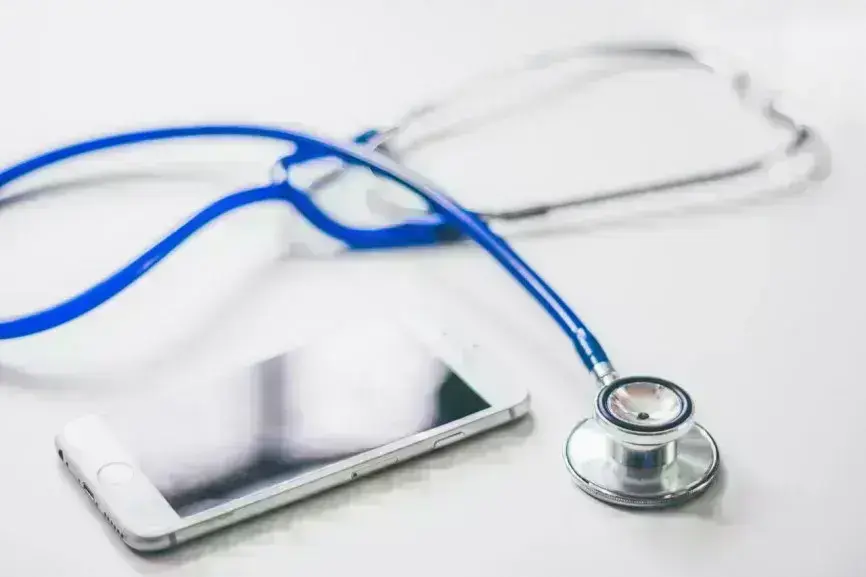
Is healthcare chatbot the future of the medical industry driven by AI?
During the COVID-19 pandemic, AI healthcare chatbots significantly eased healthcare workloads, offering flexibility, efficiency, and reliable information, with potential for broader future integration in healthcare systems.
Chatbots have undergone a surge in demand during the COVID-19 pandemic to support healthcare services at a time of unprecedented pressure and stress. While most of these AI systems have been designed to focus on diagnosing and advising patients with symptoms of COVID-19, there are questions surrounding the potential for wider implementation of healthcare chatbots in the future of healthcare.
These questions are prompted by the significant advantages they have delivered:
- Easing the workload of health professionals
- Offering more flexible healthcare services
- Providing reliable sources of information and improving the efficiency of services
- There are obstacles, however, to overcome before we can determine whether or not AI healthcare chatbots can truly drive the future of healthcare.
A healthcare chatbot is an AI-driven chatbot designed to interact with users through voice or text, and they are programmed to support the role of healthcare workers and the functioning of healthcare systems.
The benefits of healthcare chatbots and their potential for integration into the future of healthcare
AI-driven healthcare chatbots have been and will continue to be immensely valuable tools for easing the pressure on healthcare workers and systems. For this reason, the growth of healthcare chatbots has sky-rocketed since the wake of the pandemic. Since May 2020, a healthcare chatbot developed by Sutter Health has helped to diagnose over 30,000 people in the US with Covid-19.
The system referred only 11% of this population for a video consultation with a physician to determine the diagnosis, saving the time and energy of physicians and freeing them up to focus on more challenging tasks. The Centre for Disease Control also developed an AI-powered chat box for people to check their symptoms for coronavirus on their website.
Similarly, the World Health Organisation developed a WhatsApp messenger chat box to dispense information about Covid-19. Finally, the Centres for Medicare and Medicaid Services used a chat box named ‘Clara’ to judge whether or not people should self-isolate or visit a doctor based on the information that individuals give them.
In addition to alleviating physicians’ diagnosis function, Clara helped protect healthcare systems by controlling the potential spread of the virus and the pandemic. AI-powered healthcare chatbots such as these will continue to be used in the future of healthcare to alleviate the pressures faced by healthcare systems worldwide.
Healthcare chatbots can help to create a future healthcare system that can be accessed anytime and anywhere. Unlike humans, healthcare chatbots can operate on a 24/7 basis. Depending on their programming, they can assist patients living in different time zones, from different parts of the world and in different languages.
This could become particularly useful for patients living in remote areas of the world where there are limited medical services. This could also become valuable in situations when first aid needs to be delivered at a moment’s notice.
The healthcare chatbots’ inherently flexible nature also makes them useful as health-tracking devices. This has been proven by ‘Florence’: an AI-powered ‘personal nurse’ which connects with patients using social media messenger services. Florence can remind patients to take their prescription medicines once the user inputs details about the medicines they take and when they should take them. In addition, Florence can track the user’s health status, such as their mood or weight, and help the user achieve specific health-related goals. Lastly, Florence can identify the nearest medical service to a patient in case it is needed. Healthcare chatbots, therefore, will drive a more flexible future for healthcare services.
Healthcare chatbots are key players in creating a more efficient future healthcare service. They have been developed to address and target specific areas of healthcare systems traditionally associated with inefficiency. The healthcare chatbots developed by Sutter Health, for instance, have been used to evaluate the most appropriate healthcare venue for patients’ treatments according to their geographic location. This saves the time of patients and their healthcare workers. In addition, this system gathers medical information about the patient and can share this centralised data source with different healthcare workers.
AI-powered healthcare chatbots could also help patients quickly and seamlessly book appointments at their healthcare centres. This frees up the time of receptionists and patients, especially as bots can deal with and manage multiple enquiries at any one time. Healthcare chatbots can help with other administrative duties of healthcare workers, such as dealing with the paperwork involved in hiring and training employees. They can be used to process applications, send out files and reminders to employees, and process the requests of employees. Healthcare chatbots, therefore, will continue to be used to improve the efficiency of healthcare systems and services.
AI healthcare chatbots can improve the accessibility of reliable information for patients in the future of healthcare. They do this by helping patients strike a balance between gathering information from unreliable internet sources and using up the valuable time of doctors. The Ubisend company, for instance, supports their customers to create AI-powered FAQ chat-boxes to answer repetitive questions on a 24/7 basis. The more these chat boxes are used, the more helpful they are at providing relevant customer answers. The chat boxes are also designed to keep track of customer behaviour, such as the questions being asked the most. This could be helpful for healthcare organisations to become aware of the major concerns of patients and reassure them better. Healthcare chatbots, therefore, save time for the patient and healthcare workers who would otherwise have to answer these queries and empower the patient with reliable health information.
Challenges that need to be overcome
Healthcare chatbots need to become more reliable and dependable before we can imagine their future integration into healthcare systems. Although healthcare chatbots are more reliable sources of health information than anything a Google search could produce, many doubt their ability to compete with the knowledge of trained physicians. This is especially true as many healthcare chatbots can still not perform independently and need to refer treatment recommendations to doctors to review before processing. For instance, the AI-driven healthcare service ‘Babylon’ refers patients to video consultations with doctors once it recommends a treatment.
The reliability of healthcare chatbots has been calculated by the University of California, which developed an AI system with Google. It was found that their AI healthcare chatbots gave the same prescription as a doctor 75% of the time. While this is a high score, the physician remains the expert in the healthcare field. If healthcare chatbots are to become more widespread, their algorithms need to consider the number of variables physicians consider. Only then can healthcare chatbots be relied upon to become more fully integrated into the healthcare system.
Further, there is concern that AI-driven healthcare chatbots will not perform well when dealing with diverse populations, as there was an under-representation of minority groups in the training of AI models. It is crucial that this problem is resolved before healthcare chatbots are endorsed to diagnose and even treat larger groups of people.
There needs to be a financial incentive to achieve more widespread implementation of healthcare chatbots within healthcare services. At this time, insurers do not normally reimburse providers for healthcare chatbot services. This dissuades healthcare providers from adopting these systems, especially when they struggle to pay for essential services. If healthcare systems switch from a fee-for-service cost system to a value-based system, however, healthcare chatbots will likely become more integrated into healthcare services. This is because the value of healthcare chatbots in creating a more efficient, flexible, and less manually intensive healthcare service will be rewarded.
In conclusion, healthcare chatbots have been highly beneficial AI systems to healthcare workers and healthcare systems. These benefits have made some question whether healthcare chatbots will play a larger role in the future of healthcare. They delivered a critical role in the pandemic, easing the workload of healthcare workers to help them better manage the crisis.
Healthcare chatbots could theoretically continue performing a similar function once the pandemic ends. Further, they have improved healthcare services’ efficiency and made those services more flexible for their users. They have also become a reliable source of healthcare information for patients.
These benefits are advantageous to healthcare professionals, patients, and even the reputation of healthcare organisations. It is logical, therefore, that there is hope and even demand for healthcare chatbots to continue imparting their services in the future. Several hurdles, however, need to be overcome before healthcare chatbots can transform into the driving force behind healthcare. These challenges include developing the algorithmic abilities of Healthcare chatbots, integrating them into healthcare systems more and introducing a Value-based cost model to provide financial incentives for more widespread use of healthcare chatbots.

Contact us.
If you need a partner in software development, we're here to help you.
We will respond to your enquiry immediately.